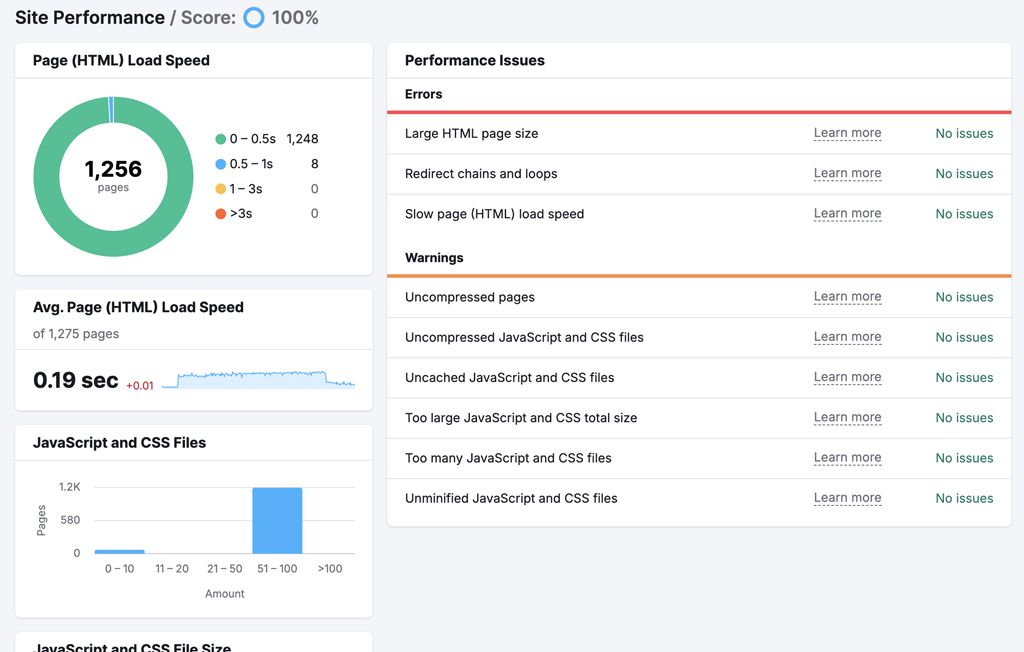Most marketers don’t realize how much revenue is lost to site speed until traffic dips or leads stall.
Your site might look fine. But if it takes too long to load, it’s quietly getting punished in Google results, turning off visitors, and costing you qualified leads. Page speed is now a ranking factor, an experience factor, and a conversion factor, and it’s rarely being monitored.

Slow Sites Lose on All Fronts
We see it constantly: websites that look sharp, but lag on mobile and get buried in search. It’s not always a design issue. In fact, many underperforming sites are visually impressive. But performance problems usually start under the hood.
What causes this?
- Poorly compressed images that weigh down mobile load times
- Bloated JavaScript libraries or unused CSS from old features
- Outdated CMS plugins creating latency and technical debt
- Frontend tweaks layered on top of an already fragile foundation
We run into these issues constantly across healthcare, B2B, retail, and education. They affect how pages rank, how fast they load, and whether users actually stick around.
Google Is Watching (And Penalizing)
Speed matters more than it used to.
Google now evaluates page experience as part of its ranking algorithm. That includes mobile and desktop load speed, Core Web Vitals scores, and interactivity metrics. These signals aren’t abstract. They directly influence where you show up and how often you get clicked.
And once a visitor does land? Lag time kills, especially on mobile, where attention spans are short and expectations are high. Even a one-second delay can increase bounce rates and drop conversions.
Most fixes are low-effort. The hard part is knowing what’s worth fixing.
What We See Across Industries
Whether it’s a nonprofit site running five-year-old code or an e-commerce storefront chasing the latest frontend trend, the patterns are the same:
- Sites that “work” but deliver slow experiences on modern mobile networks
- Dev teams focused on redesigns while ignoring technical performance audits
- Clients unaware that Google is factoring their page speed into ranking and visibility
- Campaigns driving paid traffic to slow pages, then wondering why ROAS is slipping
Without performance monitoring and a clear optimization plan, these problems stay hidden until something breaks or traffic drops too far to ignore.
Let’s Be Honest
Neglecting site speed means missed rankings, lower visibility, and easy wins for your competitors. It’s one of the most fixable issues in digital marketing, but it’s rarely addressed proactively.
At Starkmedia, we help clients identify the real issues behind slow load times and prioritize the changes that will drive meaningful performance gains. Sometimes that’s a CMS audit. Sometimes it’s image compression, script refactoring, or hosting adjustments. In every case, we focus on what matters most: speed that converts.
Ready to Get Clear?
If you haven’t reviewed your page speed (or don’t know what your Core Web Vitals scores are) it’s time to take a look. We’ll show you where your site stands and what you can do about it.